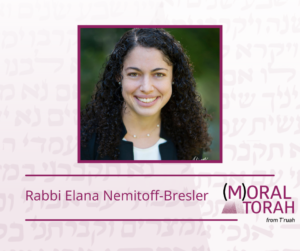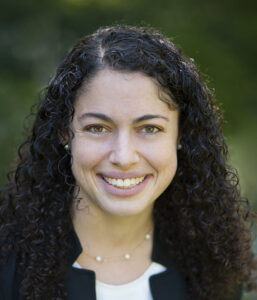A D’var Torah for Lag BaOmer by Rabbi Elana Nemitoff-Bresler
On April 11, 2021, another young man was shot and killed. Daunte Wright was at a traffic stop, pulled over for having air-fresheners hanging from his rearview mirror, and killed by a police officer who was yelling taser but pointing a gun at him. This was less than a year and only a few miles from where George Floyd was killed by police in May of 2020. Then, even as we were learning that a jury had found Derek Chauvin guilty of murdering Floyd, police in Columbus, Ohio killed Ma’Khia Bryant. Even that guilty verdict isn’t enough to stop the almost daily killing of Black and brown members of our society.
We see the confluence of racism, gun violence, police brutality, and classism all coming to a head. It seems endless. We are exhausted from it all. And yet, it continues, so we cannot become worn down by the repeated assault of it.
Daunte Wright’s family is in mourning, devastated by the loss of a young man whom everyone looked up to (according to one of his mentors). In Jewish tradition, the family would sit shiva for seven days, the most intense period of mourning where the family remains in their house focusing exclusively on their grief. Following that, the family has another 23 days (30 days since burial) of mourning called shloshim, the more extended period of mourning where one does not celebrate festive occasions, cut one’s hair, listen to music, etc. At the end of that time, the family begins to arise from their slightly less formal mourning and returns to their lives.
Sign up to receive (M)oral Torah in your inbox each week.
We have another upcoming moment of rising out of mourning. Lag BaOmer, or the 33rd day of the Omer, is considered the end of a mourning period for Jews around the world, moving us even closer to the moment of Revelation at Shavuot. The idea of the Omer as a period of mourning has never really resonated with me, but I nevertheless think we can use it as a framework for understanding our own modern lives.
We read the Talmudic story of Rabbi Akiva and his students, where 12,000 pairs of his students died because they did not treat each other with respect. (Yevamot 62b) Later rabbis suggest these deaths occurred between Passover and Shavuot, so we might think of the Omer as a period of mourning for the ways we don’t respect each other.
For a more theological take, Rabbi Shai Held suggests that the reason we mourn is “because our experience falls so unbearably short of the redemption we have been promised and assured will come. …Yet grief does not have the final – or even the loudest – word, because we affirm that the God who redeemed us once will, despite all evidence to the contrary, redeem us a ’second time.’” (The Heart of Torah, Volume 2, p. 75)
So we mourn. And then on Lag BaOmer, we begin to cast off our mourning clothes, returning to action, to life, to hope. We prepare for Revelation. This year, Lag BaOmer falls close to what would be the end of shloshim for Daunte Wright. Wright’s death is one more out of a myriad reminders that our experience does indeed fall short of redemption. There is too much death. We are not yet ready to receive the Torah as a world, because there is too much amiss. We have not collectively done the work to make the world a safe enough place for God to entrust us with the Torah.
Find more commentaries on racial justice.
The traditional text of the Amidah, which forms the core part of our thrice-daily prayer services, praises God as the One who will bring a go’el, a redeemer — the Messiah — to our people. Years ago, the Reform movement changed the text we recite from go’el to ge’ulah, redemption. I don’t believe a single, divinely ordained leader will come to transform our world. That responsibility rests on all of us. We cannot usher in the messianic age until we all have done much more work to make our world a healthier safer place.
Thinking of Lag BaOmer as the end of shloshim also reminds us that we have to move from grief into action. We have to make ourselves and our world ready to receive revelation.  There is too much trouble — not the good kind — happening among our brothers and sisters attempting to live their lives at peace. We must find ways to join hands with them. For God cannot bring about that second redemption until we are partners with God and with each other in bringing our world to a moment of redemption and revelation. We must each take responsibility for our own part in fomenting racism, classism,and all the other challenges that get in the way of us truly living as partners with each other and God. Only then will we find our redemption.
There is too much trouble — not the good kind — happening among our brothers and sisters attempting to live their lives at peace. We must find ways to join hands with them. For God cannot bring about that second redemption until we are partners with God and with each other in bringing our world to a moment of redemption and revelation. We must each take responsibility for our own part in fomenting racism, classism,and all the other challenges that get in the way of us truly living as partners with each other and God. Only then will we find our redemption.
Rabbi Elana Nemitoff-Bresler is the Rabbi Educator at Temple Israel of Westport, CT. She appreciates every opportunity to learn and meet others where they are, translating Judaism for a 21st century audience.

